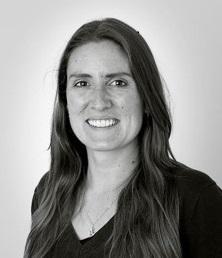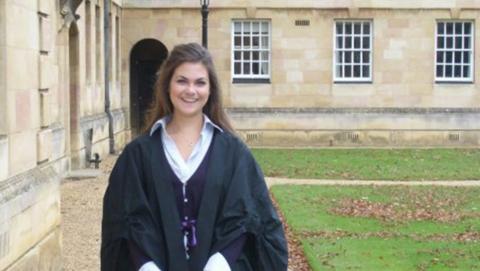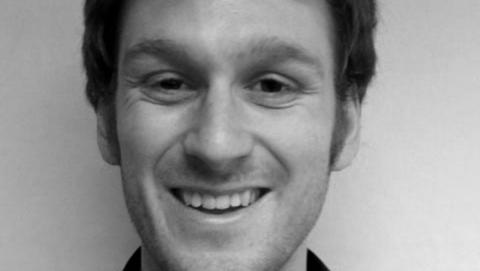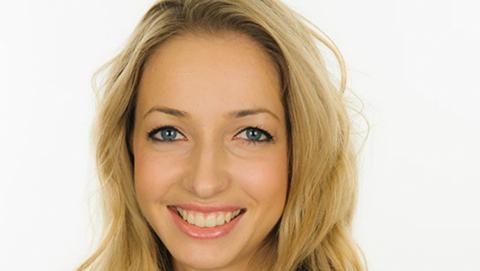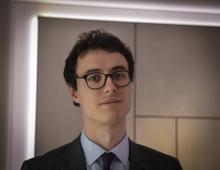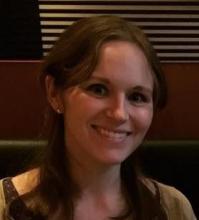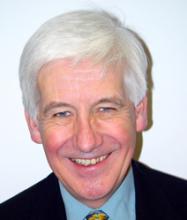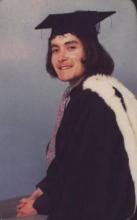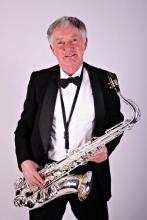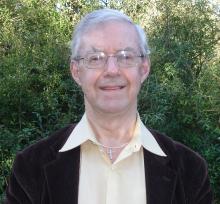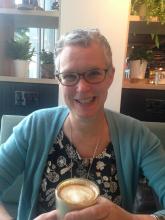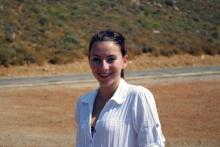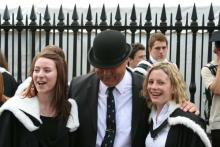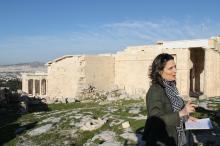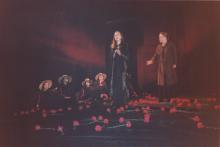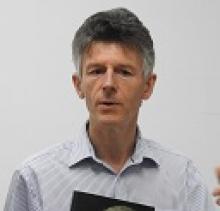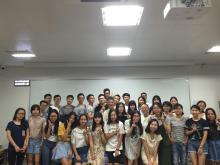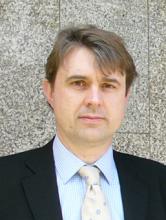We are very proud of our Alumni community and what they have all gone on to achieve. Here they tell us, in their own words, about their fantastic work following their Cambridge studies and show just how enriching studying Classics has been for them.
Jemima Maunder-Taylor
What have you been doing since leaving Cambridge?
I have been working in advertising for about 5 years now, after travelling around South America and taking part in a marine conservation project immediately after graduating in 2011.
I work in strategy for an international agency (within the Omnicom network) called AMV BBDO, which is a form of creative consultancy - I write the case for how communications could solve a client's business problem. It is a very broad role; I work on b2b, corporate, FMCG, start up and retail brands and across different media (TV, print, digital, social media).
What skills did you develop through Classics and how do these help your professional career?
I spend a lot of time working through trends, analysis and data points to structure persuasive arguments on anything from cultural trends and attitudinal shifts to sales tactics or consumer behaviours. My job is quite simply to have an opinion on how someone's product / service can change the behaviour of those who come into contact with it, and the most motivating way to communicate that. This requires real breadth of thinking and lateral observation - we have to appeal to different people with different lifestyles, opinions, habits, traditions, ambitions etc. The ability to consume a culture through the eyes of its creators is key - which is the precise skill I gained from a study of the Ancient World. The discipline of learning an ancient language and the culture around it was an early learning curve which was the perfect preparation for advertising strategy.
What was your favourite thing about studying in Cambridge?
I could not have been happier at Cambridge - the support from the Faculty was superb and I made so many lasting friendships during my three years there. I am still in touch with my DOS and, despite having left 7 years ago, feel very closely connected to the community.
A Classics degree at Cambridge was everything I had hope for - it was diverse, interesting, challenging, packed with skills to learn & apply and above all, really really enjoyable. I studied something I loved - which is very valuable in today's world!
One of the things which drew me to Classics was the prestige of the Ancient World - the drama, the battles, the archaeology of power, the raciness alongside the conservatism. I think it's one of the most fascinating subjects.
Isabel Albarran
Economist at an investment research firm, (Downing, 2007)
The best thing about the Cambridge Classics tripos is its breadth and flexibility – you are guaranteed to find something that captivates you, and you may even discover new interests in adjacent fields. I discovered I really enjoyed linguistics, which I never would have expected, and ended up doing a part II paper with the Linguistics faculty. It also provides you with an opportunity to spend three years doing fascinating work (with fascinating people) that you will almost certainly never find time to do otherwise – there is plenty of time to learn accounting once you’re in the real world, but less time to really get to grips with dialect Homer. And all that language work will make learning a new one a case of months rather than years.
Lastly, despite being a degree mostly about sex and violence, Classics has an excellent reputation with employers, even in highly competitive and quantitative fields. Because it exposes you to a range of disciplines, and develops your analytical skills, a Classics degree translates well to the workplace. Experience analysing literature, data, material culture and language means you will be able to see connections that others miss, and express those ideas in stylish prose.
Rob
Screenwriter, Film Industry Worker, and Tutor (King’s 2007)
I studied Classics at Cambridge from 2008-2011 and I now do odd jobs in the British Film Industry alongside private-tutoring while I work on my own screenwriting.
Studying Classics is something that often baffles or bemuses my friends but in truth, it’s one of the best decisions I ever made.
Classics is often written off as a ‘dead subject’ but actually, because it doesn’t necessarily generate so much new content, it always ensures it’s kept fresh by staying abreast of the latest innovation in academic scholarship: Through studying Classics at Cambridge, I became incredibly interested in differences between women and men, went on to study an MPhil in Gender Studies, and now have a feminist passion that informs my politics and my writing.
The Classical Tripos at Cambridge is challenging because often you’re forced to juggle different requirements at different times: learning two ancient languages alongside developing critical thinking and writing in literature, art, history and philosophy forced me to develop skills that stood me in good stead when I worked in difficult and pressured work environments.
You tend to only study Classics if you love it and appreciate how brilliantly bonkers it is. Consequently the faculty has a close-knit, supportive and familial feel that I don’t think is matched in any other department. For my part, I still go on holiday every year to a different part of the Med with ten or so dear and close friends that I met in first year lectures!
Lizzie Lawn
National Account Executive, L’Oreal (King’s, 2007)
Whilst what I do day to day nowadays, working in a commercial role at the multinational beauty company, L’Oreal, might not seem to be directly related to my degree, there are two ways, for me, in which it has been infinitely useful - both in terms of the skills I’ve learned, and my area of interest. Firstly, I’m told that Classicists often make good marketers and salespeople because of our dexterity with language and our ability to problem-solve: I’m able to formulate a compelling consumer insight to be used in an advertising campaign, (a current one being ‘mythic hair oils’) or deliver a well-argued presentation with a logical conclusion - now an easy task when I think back to the practice I had with those weekly essays! And on the second point, my subject of choice for my thesis was around the reception of classical bodies and body image from ancient times through to the modern day - a topic which I continue to engage with through challenging what beauty means to different people, why those perceptions exist, and how best to communicate ideals of beauty to a diverse audience.
Classics is a fascinating and diverse degree at Cambridge, which can take you into pretty much any area of interest you choose, and will leave you with pockets of knowledge that provide endless entertainment for friends and colleagues during the most mundane of meetings (V Shape = facial contouring technique, or the appearance of Adonis’ lower torso?) And, sad though it may seem: no matter how successful Cambridge is in preparing you for the world of work - the world of work cannot alleviate how much you will miss Cambridge.
Sophie Odenthal 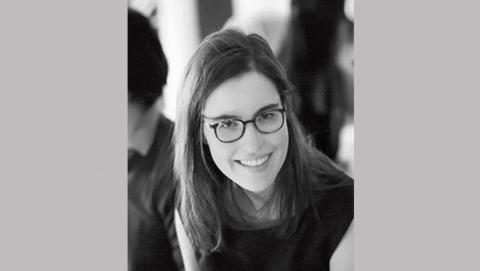
I work at HM Treasury, where my job is to advise the Chancellor of the Exchequer and other Treasury Ministers on the best way to invest the billions that the Government spends on infrastructure in order to support productivity and economic growth. My degree in Classics (I was at Emmanuel College from 2010 to 2013) was excellent preparation for the world of work. It taught me to think critically, and structure arguments in a clear and concise way that allows Ministers to understand complex policy issues. Moreover, the supervision system taught me how to hold my own in the face of senior experts. Writing or presenting a Ministerial briefing is not unlike a Cambridge supervision: you have to be well-grounded in the topic at hand, and be prepared to explain the evidence supporting your conclusions in a robust manner. The best thing about a Cambridge Classics degree is the amount of variety that it offers: any undergraduate is expected to juggle a number of very different subjects, from political history to art to literature. It is true that it’s hard work, but it proves that you can thrive under pressure, and spread your wings no matter what is thrown at you. I wouldn’t have chosen to study anything else!
Richard Knowlton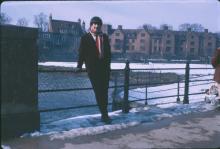
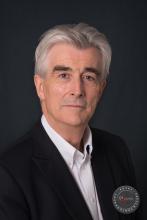
What you have been doing since you left Cambridge?
I went straight into the Foreign Office on graduation (I'd actually passed the exams in 1972 but postponed entry so that I could complete my Part II). Over the next 32 years I had postings in Finland (twice - I had to learn Finnish at the end of the 1970s and Finnish linguists have always been in short supply); Zimbabwe; Dubai; Barbados and Caracas. I then went into the corporate world and have remained there ever since. I've worked for two major multinationals: UniCredit, an Italian bank that is still the biggest bank in Central and Eastern Europe, and the Vodafone Group. I've become increasingly interested in the risk management issues involved in the digital revolutions of recent years, and now run a consultancy focused mainly on those issues. (For more, see www.knowltonassociates.com). I have lived in Italy since 2012 and am now a dual UK-Italian citizen. My love of Ancient History has certainly had something to do with that!
What skills did you develop through studying Classics?
The obvious skill is an ability to develop an accurate view of the big picture from a careful study of detail. A skill much prized in the FCO still, I think, and invaluable in studying complex international and business environments.
What was your favourite thing about studying at Cambridge?
Probably two things in hindsight. I loved the supervision system, and was lucky to have 1-1 sessions for Part II with eminent leaders in their field of the time. I found my supervisors invariably kind, patient and keen to help. The other thing was the faculty life of the time. I was Treasurer of the Herodoteans, a classical association that met monthly and had regular excellent speakers from Cambridge and beyond. I was also on the Faculty Liaison Committee, an attempt to encourage undergrad participation in the aftermath of the student "excitements" of 1968-1970.
Jim Thomas 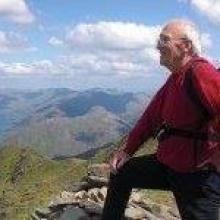
What I did at Cambridge and why
My earliest ambition to learn Greek came at the age of about 11, when I wanted to read the New Testament in the original. Subsequent, much more specific, inspiration came from two books, “The Bull of Minos” by Leonard Cottrell and “The Decipherment of Linear B” by John Chadwick.
For Part 2, I chose Art, Architecture and Archaeology, specialising in Pre-Hellenic Archaeology, as my main subject, with Linguistics, specialising in Mycenaean Greek, as my subsidiary subject. My hope was that I might go on to a career in Mycenaean and Minoan Archaeology. This was not to be. Although I did have the amazing experience of being part of Lord William Taylour’s team excavating in the “Citadel House” area of Mycenae in 1964, my degree result (2:2) was not sufficient to be the basis of undertaking research.
What I have been doing since I left Cambridge
Instead of archaeology, I joined the Civil Service as an Assistant Principal - known nowadays as a “fast streamer”. Entering the Board of Trade in 1964, I commenced an endlessly fascinating and remarkably varied career. I dealt with the Government’s relations with the motor vehicle, agricultural machinery and tractor and many other industries. Also the UK’s commercial relations with the Soviet Union, Ireland, Canada, Central America and the Caribbean, Government support for job creation in depressed areas of the country, shipbuilding and marine technology, newspaper mergers and, eventually with the space programme.
But what has all this wonderful variety to do with classics? I will refrain from suggesting that my knowledge of the Greek Bronze Age might have been helpful in dealing with the non-ferrous metals industry! More seriously, I believe that the most essential skills of a Civil Servant are to be able to analyse rigorously problems which are complex and where the information is incomplete, unreliable and often biased and then to present them and recommend solutions to them in ways which are clear, persuasive, readable and precise.
I submit that these are exactly the skills which are required for the study of the Classics, especially those bits which particularly attracted me. There are many other subjects which call upon similar skills, although the very remoteness of the Classical and pre-Classical world does develop them in some singular ways, through the limitations of the evidence remaining to us. In addition, detailed study of the structure, development and interpretation of languages which are far away in time and in intellectual context, while also being ancestral to many of today’s languages, is invaluable in at least two ways, both central to the needs of a Civil Servant. It is an essential basis for the clarity, persuasiveness, readability and precision which I have mentioned. Civil Servants, more than anybody else apart from lawyers, have to be exact in their use of language.
Secondly, the ancestral nature of Greek and, especially, Latin makes them a unique key to learning other languages German and even Finnish, both quite removed from Classical ancestry, derive significant amounts of their grammar from Latin. Having spent the last 16 years of my career as a UK delegate to the European Space Agency, I cannot overstate the importance of being able to hold some sort of conversation, and often detailed business discussions, with delegates from every other Member State in their own languages. This gives an essential insight into their own minds and also gives credibility to oneself and earns their respect. Latin and Greek enable this in a way which no modern languages could do on their own.
I might add that Latin and Greek are also the source of most of the terminology and jargon of the sciences and technologies with which I have had to deal. They are a very great help in learning to understand and remember what scientists and technologists are talking about.
What was your favourite thing about studying at Cambridge?
There is no single favourite thing. Frank Stubbings, who was my Director of Studies, had worked with Alan Wace. This was pure joy, given my own interests in Mycenean Greece. This was doubled by learning Mycenean Greek from none other than John Chadwick. Other lecturers who stand out in my memory were John Raven and Moses Finlay but there were many others. Sitting at the feet of the finest was far more than a romantic cliché.
I was able to achieve two of the things that I had hoped for before Cambridge. I secured a ticket for the King’s Advent Carol Service and I took part on the University Greek Play (The Clouds). Following on from the latter, Emmanuel also ran its own annual Greek plays and I was able to take part in Hippolytus, the Ecclesiazousae and Medea, both as an actor and as part of the production team.
These dramatic opportunities, together with the College Debating Society, did much to develop skills required for public speaking, which came my way a great deal as a Civil Servant, as well as being enjoyable and memorable. Above all, I suppose the best thing about studying at Cambridge is simply being in that wonderful community and place.
Tom Newman-Taylor
Why choosing to study Classics at Cambridge was the best decision I ever made
What do a doctor, lawyer, hedge fund manager, academic, actor and a Civil Servant all have in common? We all studied Classics together at Cambridge just over ten years ago. We all loved it and we all agree that it was a fantastic basis for our later careers, despite the fact that we’re all now doing completely different jobs.
I’m the Civil Servant – and my career since University has involved advising senior Government Ministers, working on new laws in Parliament, buying intercity trains from Japan, running major projects for a port operator, and now, devising the UK’s national and international policy on reducing pollution from ships.
What does Classics have to do with any of this?Well, each week at University I had to research and write about a new and totally different topic – Homer’s Iliad one week, Roman Britain the next. Then I had to present my work to a leading academic (in fact, often the world expert in that field) and defend my arguments in a one-to-one supervision with this person. Today, thankfully I don’t have to change job each week but most days I do have to get my head around a new subject, weigh up arguments and present advice in a concise and coherent way to my Government Ministers.Why did I love studying Classics?
I started out studying English but changed after my first year. Unlike most degrees, Classics allows you to continue studying a wide range of different subjects – literature, history, philosophy, politics, archaeology, art – and I missed this variety. As you progress through the degree you begin to see how each of these subjects fit together: reading Virgil’s Aeneid is all the more inspiring once you know a bit about the emperor Augustus and the politics of Rome at the time.
Classics contains the best bits of other humanities subjects – the brain-hurting process of constructing an essay on a complicated topic. But you will also learn two difficult and very different languages, Latin and Ancient Greek. I can see a very clear link between the painstaking, close translation work I learnt at Cambridge and the very close textual analysis I now have to do when reading complex legal or technical documents – it’s no surprise that Classicists make expert lawyers.
It is worth saying though that many people find Latin at school really boring because it can focus almost entirely on the translation side (Quintus in agro laborat bla bla…). Luckily it’s the opposite at Cambridge where learning the language is really just a vehicle for gaining a better understanding of the subject – after all, how can you know what these people really thought if you only ever read them second-hand and in translation? But it’s a really nice bi-product that you leave University with a fundamental grasp of the two ancient languages which underpin so many modern European languages: and if you want to learn French or Italian after studying Classics you will find it a doddle.
Another thing I noticed doing Classics at Cambridge was that I had much higher quality of teaching than my friends studying other subjects (at Cambridge and elsewhere), and also that my Classics academics seemed much more committed to their undergraduates. This is an anecdotal observation – but it is hardly surprising that Classics as a subject has to work harder to attract people and to justify its existence than more popular subjects. Classics academics are constantly asking themselves “why does this subject matter? What do these people from over 2,000 years ago have to teach us about our lives?” The ‘celebrity Classist’ Mary Beard – who was one of my lecturers – makes a career out of finding new meaning and relevance in ancient sources and in bringing the subject to life for new audiences.
But is Classics at Cambridge just for posh people? No – and the Classics Faculty is so keen to attract people from a diverse range of backgrounds that it even has a four year Classics course for people who haven’t studied any Latin or Ancient Greek at school. My wife Ella went to a comprehensive school in Lewisham and she got on to the four-year course. She is now a doctor and has no doubt that studying Classics has made her better at understanding her patients and diagnosing their illnesses (there’s even a module on Death and the Afterworld in your final year of Classics).
And this is a really important point: at the age of 17 it is understandable that you are thinking hard about which degree subjects will give you the best career prospects and earning power, particularly given the high costs of tuition fees. But please, please don’t automatically assume that a vocational degree and a quick route in to a job equals career success. As you get more senior in any field of work (yes, including medicine, economics and law) it isn’t your knowledge of facts that enables you to progress, it’s your ability to assimilate complex information, make and defend a coherent argument while anticipating the counter-argument, articulate yourself clearly in presentations and in writing, understand and empathise with your colleagues, customers, patients, Ministers, audience etc. Classics at Cambridge will teach you all of this – and in a way that very few other subjects can.
Julia Trocmé-Latter
What you have been doing since you left Cambridge?
After graduating in 2009, I took a job as an office manager at Classical Numismatic Group (CNG) in London. Although the post was supposed to involve taking care of the office's quotidian needs, the coins which came into and out of the office certainly piqued my interest as a Classicist.
My employer encouraged my interest and soon I was researching and writing short essays to bring certain special pieces to the attention of collectors, including one medal of Severus Alexander showing the former Elagabalium reconsecrated to Jupiter Ultor.
The pinnacle of this was a 12,000 word essay on the historical and religious importance of a gold medal of Charles I, which we were able to convincingly prove was a relic of the Anglican Church. After a year of this I got married and returned to Cambridge for an MPhil on numismatics, looking at how Oliver Cromwell and Napoleon Bonaparte used Roman numismatic imagery on their coins and medals. During this time, I volunteered in the Coins and Medals Department of the Fitzwilliam Museum, where I helped with the catalogue library under the late Ted Buttrey and got the chance to spend time with several great numismatists, such as Mark Blackburn, Martin Allen and Adi Popescu.
After graduating for the second time, I decided I needed a break from commuting to London, so I took jobs at Cambridge University Press and IMS Health, but after the birth of my first child I realised that my heart belonged to numismatics, so I returned to CNG. My days consist of researching and writing short essays and identifying ancient coins from the birth of coinage until the end of the Byzantine Empire, which the firm then sells at auction.
I also visit schools to promote numismatics as a field within Classics and draw attention to the role coins can play in historical study. Seeing young people interact with coins for the first time is a real pleasure - coins were designed to be engaged with and held, so being able to put them into the hands of students enables me to create a direct link between them and the ancient people they study.
What skills did you develop through studying Classics and how have these aided your professional career?
Putting aside the well-attested fact that a degree in Classics teaches you how to think and argue cogently, my degree is of great use in my job every single day: I can read Latin and Greek inscriptions, identify political and religious figures, pick up on artistic references, use a library research materials to the fullest, find ancient references when I need them, write persuasive articles on ancient subjects, tie artefacts to their cultural and historical context and so on and so on. Having to do presentations as part of my MPhil also helped me with preparing and tailoring the presentations I give to schools, and learning Latin and Greek prepared me to learn other languages such as German, which is a particularly useful language in numismatics, and French. Plus, daily university life also helped me develop into a much more organised and work-ready person, and having to explain my degree to people (no, I don't study Shakespeare, it's not that kind of classics...) also helped me improve my communication skills with "hoi polloi", which is much needed in a discipline where small and important distinctions are often seen by non-experts as nit-picking and hair-splitting (sometimes with good reason!).
What was your favourite thing about studying at Cambridge?
I was really fortunate to be at Newnham at a time when it was packed with great female Classicists, particularly Dr Laura Preston and Dr Helen Morales, who are no longer there, and of course the indomitable (Dame!) Professor Mary Beard, who also did me the honour of supervising my MPhil.
They taught all of us so much more than Classics. I also used to love sitting in the Cast Gallery on a rainy day; what a peaceful place.
Neil Worman
What you have been doing since you left Cambridge?
On graduating in 1965, I took the well trodden path into the Home Civil Service as what would now be called a fast streamer. This might be seen as piling one cliche on top of another, but of course the reality was rather more interesting and nuanced. After an uneasy period of adjustment both at work and in my personal life, I began to find my feet and in the end spent 38 eventful years in the public service, taking on a variety of roles, travelling quite widely overseas, and learning new skills, particularly in the area of leading and developing the people in my care. I rose to a decent height which gave me the freedom to follow my own inclinations by doing the things I felt I had most to offer in, especially developing new ideas and making contact with a wide range of people doing the same thing here and overseas. Oh, and along the way I seem to have acquired (or been acquired by) a wife, two children, some good friends, outside interests, things like that.
When I retired from the Civil Service I was just 59, and spent a few years offering my knowledge and experience to public sector bodies in the region where I live. This gave me the opportunity to learn new things (like the experience of bidding for business) and working alongside different sorts of people. I enjoyed it.
Along the way I picked up some coaching and mentoring work, and I was encouraged to develop this by taking formal training in counselling. At the age of 62 I found myself starting a 3 year course in counselling and psychotherapy, leading to a MSc degree, which I obtained in 2010. Since then I have been working as a counsellor and psychotherapist, and have also been doing some teaching at the university where I studied. So I am quite proud of having both a MA (from Cambridge) and a MSc (from Roehampton) obtained over 50 years apart.
I have found the teaching one of the most rewarding things I have ever done, and am immensely grateful that I found my way into it.
What skills did you develop through studying Classics and how have these aided your professional career?I think that the process of confronting the ancient world in all its massive differences from our world requires an exercise of the imagination and a measure of creativity. So I would want to lay emphasis on the creative side of a classical education, and the fact that it is one way of confronting the human condition and looking into ourselves (I can still remember the effect at looking into the gold masks found at Mycaenae at the age of 18, and wondering what sort of creature might possibly be looking back at me and what that creature might be perceiving.) This of course is highly relevant in the world of work, or should be.
What was your favourite thing about studying at Cambridge?
The best thing about being at Cambridge (apart from the whole experience) was the friendships I made, and in many cases still have, but what was best about studying there was probably some of the academics I (as a shy and awkward young man) came into contact with. Among the historians I would single out John Crook and Moses Finley, neither of whom need any introduction from me, but I recall that (unlike some lecturers) Crook had the ability to engage his audience and bring even the more boring bits of Roman history (legions marching from one part of Germany to another) to life, while Finley's presence in a small lecture room was, frankly, spellbinding. But there were two other lecturers who have left an impression on me which has lasted over the years - Patrick Wilkinson (Horace) and Guy Lee (Catullus). Both, I now see, were very sensitive readers of poetry who guided us through the text without ever losing the poetry.
John Purcell
What you have been doing since you left Cambridge?
I left Christ's College, Cambridge in the summer of 1971. Being unsure of what I wanted to do as a career, I spent a rather bohemian 6 months in Paris, hanging out with French folk-rock musicians, learning to speak French fluently and to play the mandolin and fiddle. These skills proved very useful in later life. I then applied to Oxford to do a PGCE and was attached to Wadham College Oxford, the sister college of Christ's. Having completed my PGCE, I got a job teaching Classics at Eastbourne Grammar School where I taught mainly Latin and a little Greek. The demise of the Grammar School system and the introduction of Comprehensive Schools to Eastbourne spelt the gradual disappearance of Classics in the State sector. As the last cohorts of the Grammar School system worked their way through the years, I found myself teaching Latin on a peripatetic basis around the newly emerging comprehensive schools and other subjects like O-level French and O-level History within the Grammar School.
A constant extra-curricular interest was Jazz. I first became interested in Jazz during my first year at Christ's and ended up playing piano and writing arrangements for the Christ's College Jazz group. At all institutions I ever taught for, I invariably ran a weekly Jazz Club for the students. After my retirement, I was able to cherry-pick the best students to play in my own jazz band.
For two years I worked in a comprehensive teaching French and Music. Then I worked at a Sixth Form College teaching variously GCSE French, History and Sociology, CPVE, GNVQ Business Studies and GNVQ Performing Arts (the music and business units). I very much enjoyed teaching such a wide variety of subjects and I formed excellent relations with students in a wide variety of disciplines. Some of my students went on to have careers in the West End Theatres, the BBC, journalism, airlines etc.
In the last ten years of my teaching career I ran and taught A-level Classical Civilisation, doing some A-level examining and coursework moderation. As a young teacher, I had learnt to drive the minibus and so was able to take students on Classical trips to places like Fishbourne Roman Palace, jazz trips to the Royal Northern College of Music in Manchester and foreign performance trips to Rouen and Cologne.
Although my teaching career ended in 2013, the college still employs me to drive sports teams in the minibus to a variety of venues. My hobbies include playing piano in a big band, running my own jazz group Con Brio (see HERE) and, following in the footsteps of Arthur Leslie Peck (my Classics tutor at Christ's), Morris Dancing (see HERE.)
What skills did you develop through studying Classics and how have these aided your professional career?
The skills that studying Classics imparts are very wide: a sharp, nimble mind, a facility with foreign languages, an ability to understand unfamiliar situations and to react to them in a rational, often original, way and an all-embracing attitude to life. The study of Classics incorporates literature, politics, philosophy, sociology, military strategy and basic economics. The skill or perhaps attitude that I most took away with me from the study of Classics was that of "humanitas" treating people (especially students) with civility and warmth. I remember with great fondness our end-of-course barbecues in June, whether the subject was Business, Performing Arts or Classics. Sometimes I held the barbecues in my garden (with the students attempting Classical attire if the subject had been Classics) or else on Eastbourne beach.
The way my career has been helped by these skills is that I have rarely felt daunted by unfamiliar academic territory or flummoxed by dealing with students from very different backgrounds from my own. I have acted as tutor to thousands of students, helping them to get university places or into the kind of industry they wanted.
What was your favourite thing about studying at Cambridge?My favourite thing about studying at Cambridge was the fantastic teaching I received from the likes of Dr. Arthur Leslie Peck and Dr. John Earle Raven. I also enjoyed brilliant lectures from Professors W.K.C. Guthrie and Sir Moses I. Finley.
Roger Clarke
What you have been doing since you left Cambridge?
I graduated in Classics in 1960 and took up a career in the administrative civil service, a not unusual progression in those days. During my nearly four decades in officialdom I did not keep up my classics (apart from reading the New Testament in Greek from time to time).
What skills did you develop through studying Classics and how have these aided your professional career?
My experience and interest in languages prompted me to learn Russian in my own time during my early, less pressurised years. Greek and Latin were certainly helpful there, both because of the Greek origin of the Russian alphabet and because of various linguistic and grammatical similarities between Russian and both Greek and Latin. Otherwise, during my time in the civil service I was constantly grateful to my Classics education for enabling me to think clearly, to analyse the words of others and grasp their true meaning (or meaninglessness!), and to express myself accurately and succinctly. There have also, of course, been cultural benefits in the appreciation of European art and history.
What was your favourite thing about studying at Cambridge?
When I approached retirement I revived my knowledge of Russian, having earlier developed a love of Russian literature, notably the preeminent poet and writer Alexander Pushkin (1899-1837). During recent years I have published annotated editions and translations of most of Pushkin's major works as well as many of his shorter poems and prose stories. My publisher, aware of my Classics background, has also asked me to translate into English Latin works by Erasmus and Thomas More. Both Erasmus and More were steeped in Greco-Roman literature and culture and their writings are full of classical quotations and references. Pushkin too had studied Latin and Latin literature at high school; also, being (like many Russian aristocrats) as proficient in French as he was Russian, he was astonishingly well-read in French authors from the 16th century onward. Through Latin and French he had absorbed a wide knowledge of classical Greek mythology, history and literature.
So in translating and annotating works by Pushkin as well as by Erasmus and More my classical education has been of immense value - not only in enabling me to understand and interpret the source language and subtexts but also in identifying literary genres and structures, poetic metres and other technicalities. So in quite unplanned ways my classical education, including such esoteric activities as unseen translation and prose and verse composition, have proved an ideal preparation for the "second career" I have pursued since my official retirement.
In addition to all that, I have over the years gained a deeper appreciation of the Greek bible, and for the last ten years and more I have been teaching a class in New Testament Greek - further spin-offs of my classics education!
Click HERE for Roger Clarke's own website.
Stuart Laing 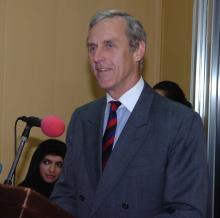
What you have been doing since you left Cambridge?
After Cambridge I joined the Foreign and Commonwealth Office, was asked to learn Arabic (which I did), and pursued a career mainly in the Middle East, my last two FCO jobs being Ambassador in Oman and then Ambassador in Kuwait. Then I came back to Cambridge. The MPhil was taken later in life, actually when I was 64, part-time, in Arab history, in FAMES.
What skills did you develop through studying Classics and how have these aided your professional career?
Classics taught me good analytical skills (I took the philosophy option in Part 2), and a good sensitivity for language. Later I re-developed my French to advanced level, and also learnt Czech and Malay.
What was your favourite thing about studying at Cambridge?
Supervisions one-to-one, on Plato and Aristotle, with Donald Mackinnon, Norris Hulse Professor of Divinity.
As far as I can see, the Faculty is doing well in demonstrating that Classics is not confined to language and translation, but offers a wide perspective on the history and culture of the ancient world.
Beatrice Rubens
What you have been doing since you left Cambridge?
I read Classics at Emmanuel from 1979-1982. I am now a Senior Producer in the BBC Radio Documentaries Unit, making documentary programmes for BBC Radio Three and Four about the arts and history, with a special interest in women and children. Amongst others, I have worked with Michael Morpurgo on a history of childhood, Mary Beard on a programmes about women and ageing, and James Naughtie on series about the Royal Shakespeare Company and the National Theatre. Recent highlights include a ten-part History of Friendship, presented by Thomas Dixon. I am currently working on a two-part series for Radio Three about gender and the arts, and am presenting a Behind-the-Scenes programme for BBC Radio Four about the leading dancer and choreographer, Akram Khan. In 2015 I won the radio category of the One World Media Awards for Afghan Women: Speaking Out, Losing Lives, presented by Lyse Doucet. Other awards include a Glenfiddich Award for a programme about food and memory, presented by the poet Sean O'Brien, and a Special Commendation in the Amnesty Awards for a programme about Malala Yousifzai's blog.
What skills did you develop through studying Classics and how have these aided your professional career?
Getting into Cambridge gave me a huge boost of confidence, which I can honestly say has stayed with me during my entire working life. I acquired a great deal of knowledge about ancient language, literature and history, but also a broad understanding of the foundations of western culture, and this has been particularly helpful in a working life which involves quickly getting to grips with a wide range of new material and ideas: when I encounter unfamiliar cultural figures or events, for example, I find that my classical knowledge is often a useful reference point or way of anchoring new knowledge to old. The skills it gave me were those of analysis, an ease with language, and an ability both to see the finest details and to consider the bigger picture.
What was your favourite thing about studying at Cambridge?
Perhaps my favourite thing of all was having to read the whole of The Odyssey in the original. When I began this undertaking, I remember how slow I was to cover even a few pages, but soon there was exhilaration as I gained speed and a growing sense of the vast variety within the unity of the epic. I very much enjoyed my ancient history supervisions with Paul Cartledge, who really taught me how to user primary sources, and reading Greek Tragedy with Pat Easterling.
James Root 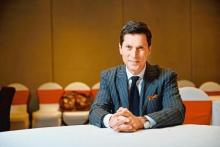
What you have been doing since you left Cambridge?
On graduation, I had a PhD place at Oxford to continue my studies in Pastoral Poetry…but this was the road not taken after all. I spent some years in Advertising, then went to Graduate School (London Business School, MBA) and have spent most of the last 30 years at Bain & Company the global management consulting firm. I have lived in London, Boston, New York and Hong Kong twice.
What skills did you develop through studying Classics and how have these aided your professional career?
The ability to read and listen critically. The ability to assess a problem, break it down into constituent parts, analyse them, and synthesise again into a solution. This applies to figuring out a hard passage of Thucydides as much as to solving growth strategy problem for a complex firm.
What was your favourite thing about studying at Cambridge?
Being lectured and tutored by the greatest Classical thinkers. Pat Easterling, Miles Burnyeat, Paul Cartledge, Geoffrey Lloyd, Mary Margaret McCabe, John Henderson. Mary Beard and Simon Goldhill were graduate students during my time. When does one get the chance to be surrounded by so much brilliance?
Graham Zanker 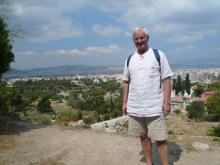
What you have been doing since you left Cambridge?
Since leaving Cambridge as a doctoral student in 1974 I was a Lecturer, Associate Professor and from 2004 the Professor of Classics at the University of Canterbury, New Zealand. I retired in 2015 to an Affiliate Professorship at the University of Adelaide, where I continue actively researching and writing.
What skills did you develop through studying Classics and how have these aided your professional career?
Through writing a doctoral thesis under Patrick Wilkinson and associating with my College's Classics dons and fellow students I got expertise and confidence in research which proved valuable for my career in New Zealand, where given my field I had to work in some real isolation. Marshalling a book-length doctoral thesis under supervision and in the Cambridge system (a PhD being by thesis alone) made a wonderful bridge between being an undergraduate and a professional Classicist. Love and enjoyment of the Classics may not be called 'skills', but mine were certainly fostered by the Faculty, as in my case they continue to be.
What was your favourite thing about studying at Cambridge?
The vibrancy, energy and facilities of the Faculty were an enormous inspiration. To be able to participate in that and so conveniently to enjoy high-quality extra-curricular activities like rowing and music was a magnificent privilege.
Clare Owens
What you have been doing since you left Cambridge?
I went straight from Cambridge into teaching. I was offered a job at Cheadle Hulme School (Cheshire) in February of my final year and started teaching there in September 2010, after graduating in June. I then completed my PGCE with Buckingham University ‘on the job.’ I moved to Manchester Grammar School in 2015. Last year I was appointed as Head of Classics at Manchester Grammar School, where I teach Latin, Greek and Classical Civilisation to A-Level standard. There are currently 7 teachers in my Department and I am in the process of recruiting an eighth teacher as Classics is so popular! We are really lucky to have such a strong Classical ethos at the school.
What skills did you develop through studying Classics and how have these aided your professional career?
Obviously there is a clear link between my studies and my job! But as well as the obvious development of skills in language, literature, philosophy, history, etc., I would say that studying Classics makes you a really well-rounded person and it teaches you how to think critically. It helped me develop great attention to detail, powers of analysis and evaluation, a determination to stick at problems until I could solve them and, because of its multi-disciplinary nature, also the ability to cope with a wide variety of demands on my time (and my brain!)
What was your favourite thing about studying at Cambridge?
My favourite thing about studying at Cambridge was being around like-minded people. I love my subject and I really enjoyed University study, so it was great to be around other people (students and inspirational teachers) who love those things too.
Caroline McKenzie
What you have been doing since you left Cambridge?
Following graduation, I attended law school and went onto practise as a Private Client solicitor for over a decade, including as a partner in a central London law firm. Following this, I taught postgraduates at a London law school. However, it was then that I realised that my heart was in the Classics classroom. I taught Latin for three years and held Greek lessons at the end of the school day for a dedicated group of budding Classicists. Witnessing the commitment of children and young teenagers to learning Classical languages, even when they were not compulsory subjects, convinced me to set up my own tutoring business, which I have run since 2013. I now teach Classical Civilisation, Latin and Greek to children, teenagers, adults and retirees. The demand for Classics is burgeoning!
Currently, I am studying for an MA in Classical Art and Archaeology, whilst continuing to teach Latin and Greek through private tuition and outreach days in schools. I write for Argo (the Journal of the Hellenic Society), The New Satyrica (King’s College London Classics Society magazine) and I create blogs for the Modern Classicisms Project and I also teach on the Homer Summer School at UCL.
When I applied for my MA, having graduated from Cambridge over twenty years earlier, I contacted my former Director of Studies, Professor Richard Hunter, who was incredibly supportive and encouraging and offered to meet me in Cambridge to discuss my postgraduate studies and to update me on life in Classics at Cambridge. I have attended lectures at various venues around the country by several members of the Faculty who had taught me as an undergraduate, and even one of my former peers, now a fellow at Cambridge; each of them took the time to talk to me and have encouraged and supported me in all my endeavours. When I returned to Cambridge for the 2016 Greek play, I stayed in my former college and attended the Greek play symposium the following day where I met up with many old Faculty friends. I feel as though I am a member of the Classics Faculty for life.
What skills did you develop through studying Classics and how have these aided your professional career?
Not only did my Classical background help me to understand detailed academic points of law but it also equipped me to provide practical advice to my clients. Furthermore, many principles of law are still described in Latin due to the precision of the Latin language. Whilst knowledge of Latin is not a prerequisite as a solicitor, it was a huge help.
The positive response which a Cambridge Classics degree always inspires is reward in itself - Classics is a great talking point. Almost everyone has an opinion on Classics and the teaching of Latin, whether they have experienced it first hand or not. Classics has certainly enjoyed a resurgence in recent years and, thanks to outreach programmes across the country, it is now accessible to many more children and adults.
What was your favourite thing about studying at Cambridge?
Classics at Cambridge gave me a lifelong love of learning. I cannot imagine ever ceasing to be fascinated by all aspects of the ancient world and the parallels in contemporary society. Even watching the news and hearing political leaders flex their rhetorical muscles reminds me of ancient Rome!
My days at Cambridge were some of the happiest of my life. For anyone considering applying to study Classics at Cambridge my advice would be, ‘go for it’ or, as Horace so deftly put it, ‘carpe diem’!
Keith Carpenter
What you have been doing since you left Cambridge?
After completing my BA course in Classics, I stayed on at Cambridge and studied law for a year. I then went to the College of Law and subsequently qualified as a solicitor. I worked 20 years as a lawyer specialising in international finance, first of all with major law firms and then at an investment bank. I wanted to work overseas and I initially spent 3 years in Bahrain followed by 4-5 years in Tokyo, where I met my Japanese wife. I returned to London for 10 years but then came back to Japan and have been living here since 2004. I have now been teaching for several years at the Law Faculty at Kobe University.
What skills did you develop through studying Classics and how have these aided your professional career?
Looking back now at my Cambridge studies in Classics, two things stand out.
My very first supervision in my first term was on ancient history. I had written an essay on the archaic period. My supervisor asked me to justify my opening paragraph. I gleefully replied that I was quoting from the author of the leading textbook. He asked me “Why does he say that?”. I could not answer. It was a like a religious experience. I realised from that moment onward that one must never accept “truth” from someone else; it is something one has to work out by oneself. In these days of “fake news” and the explosion of new forms of media, critical faculties are as important as ever.
A second aspect which I have only come to appreciate much later in life is how Classics gave me a deeper understanding of culture, or, more simply, how humans behave and how the world works. This must sound rather trite or even pompous but I now live in Asia where the cultural background is so different from the West. I have an unusual viewpoint into the educational system here in Japan, working at a leading university and with my children progressing through the Japanese school system. There is so much greater emphasis here on learning the purely technical with comparatively little importance attached to the arts. This has consequences. While there are many fine things in the country where I now live which I would love to exist in the UK (for example the low crime rate, the politeness of ordinary people and the high level of service everywhere), there are some serious cultural problems too (for example, the poor relationship Japan has with its neighbouring countries, the comparatively inward looking tendencies of Japanese students, the relentless stories of ordinary people dying from overwork which have given rise to the now internationally known term “karoshi”). Classics has sharpened my insight into understanding the context of where I live now and of my home country, their comparative strengths and weaknesses, and shapes the way I teach at my university.
What was your favourite thing about studying at Cambridge?
I have many favourites from my studies: one of the odes of Horace in which he describes how in the race of life one only sees those in front and not those behind; the sex strike in Aristophanes’ Lysistrita; the extraordinary depth of the observations of the early philosophers including basic atomic theory; the introductory section of Thucydides (for me, the first true historian) where he says his history is a possession to last eternity (ktema es aei); the raw passion in some of Catullus’ poems; the moving sentiments and language in Homer (around about Iliad Bk VI where life is compared to the leaves that are blown away by the wind). If I had to choose one it would be my sculpture course in my final year. It was so refreshing to study something completely different and conceptually fascinating - I was deeply intrigued by the early classical sculptures where almost all the male figures were nude but 100% of the female figures were covered from neck down!
Christopher Lawrence
What you have been doing since you left Cambridge?
I read Classics at Queens', 1984-1987, and I'm now Bursar of Newnham College (since 2019), having been Bursar of Wolfson College for twelve years previously. In between I helped to run orchestras, specifically the BBC Symphony Orchestra and then the Academy of Ancient Music – 'ancient' in this context means only back to 1600 however!
What skills did you develop through studying Classics and how have these aided your professional career?
I think the study of the Greek and Latin languages taught me how to write better English, especially how to write clearly and effectively. This is a skill I have valued throughout my career, to this day.
What was your favourite thing about studying at Cambridge?
The Cambridge Classics Faculty always had a friendly, welcoming, air about it; and I am sure it still does today. I enjoyed the course, in particular the opportunity to take the Group E Philology papers in Part II, which built on my love of the Greek language in particular (and you must bear in mind that my most treasured book was 'The Decipherment of Linear B' by John Chadwick). But I also appreciated the Cast Gallery upstairs – a wonderful foil to the busy life of a student trying to pass a degree while playing the tuba in every orchestra in Cambridge!

